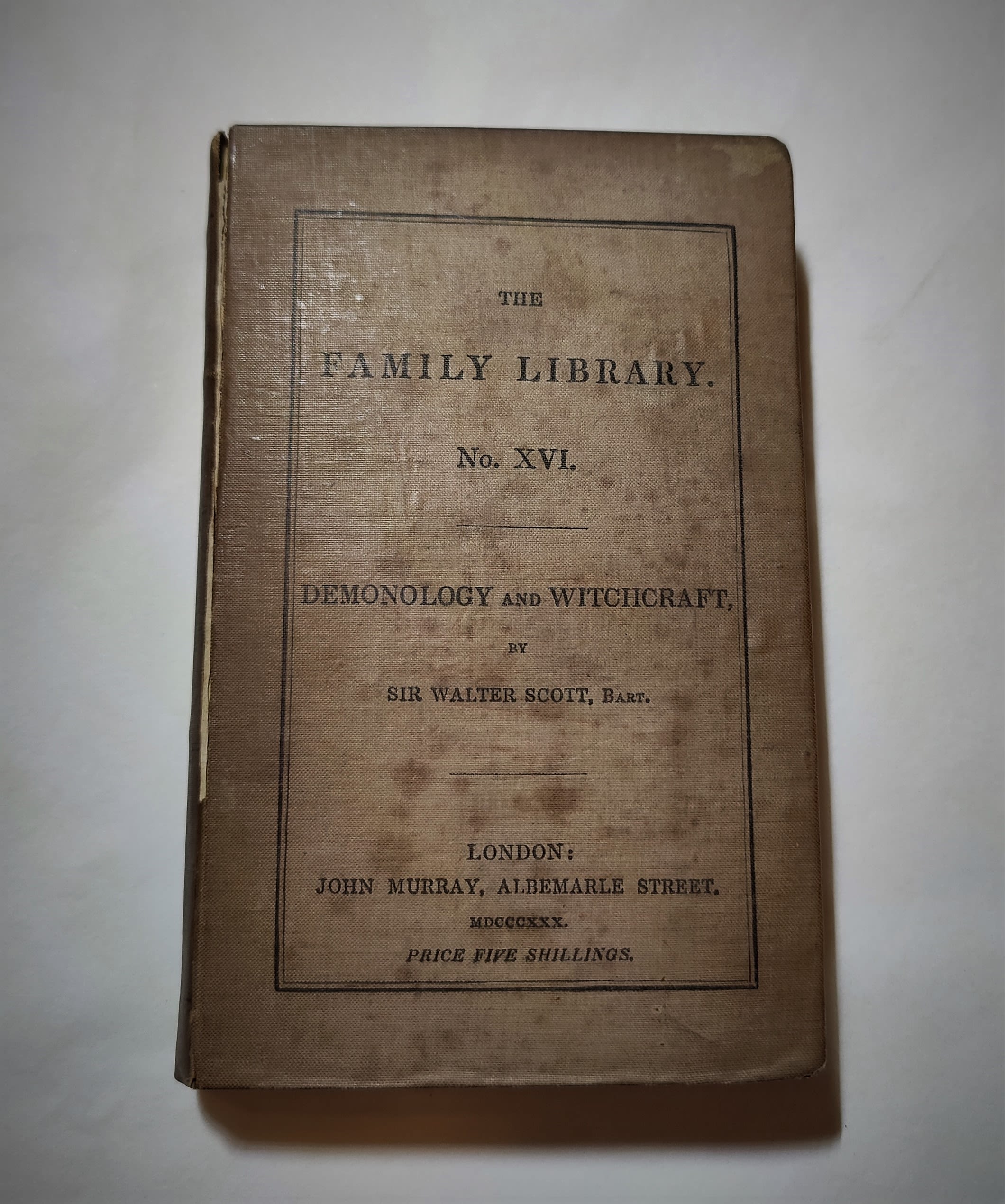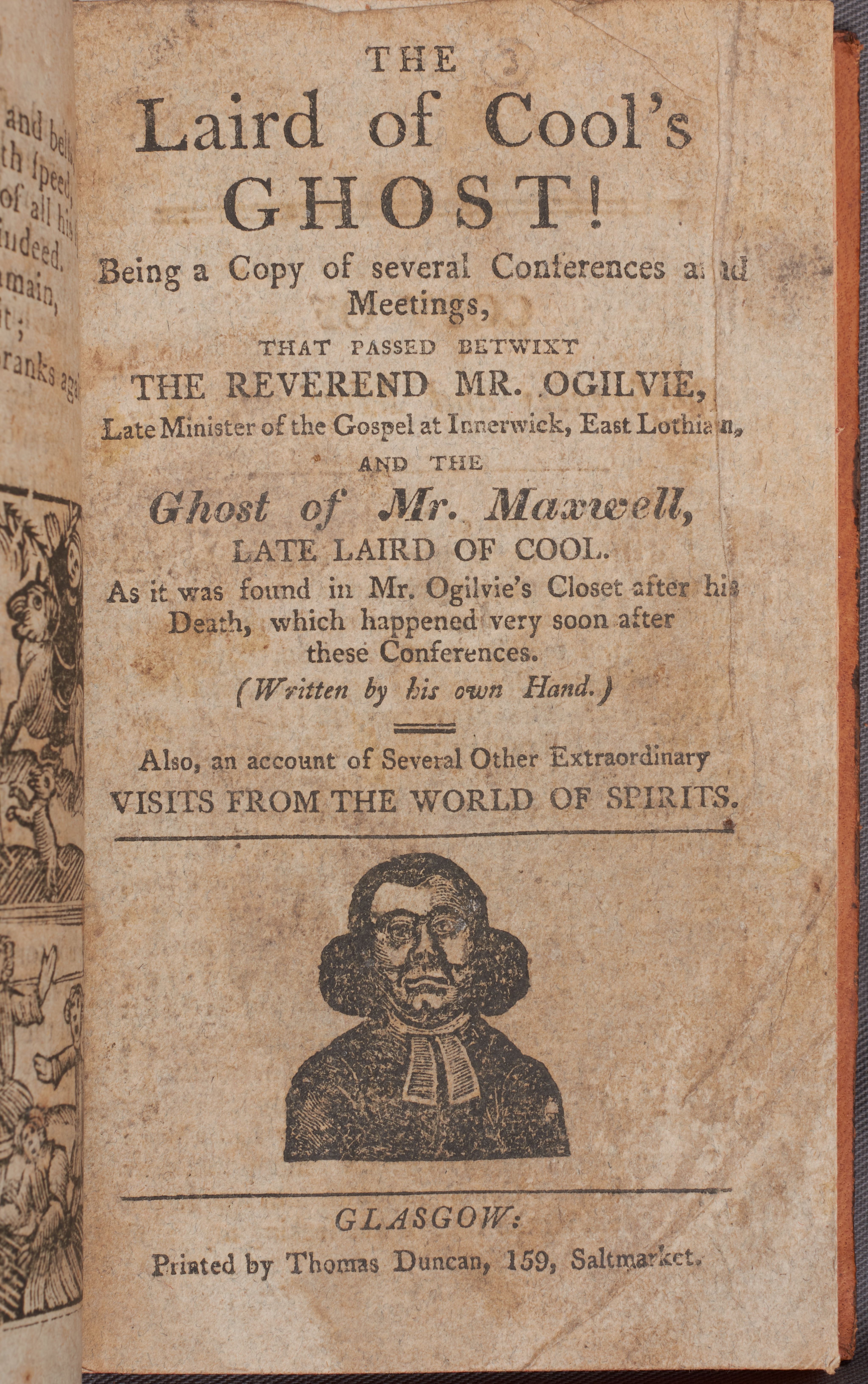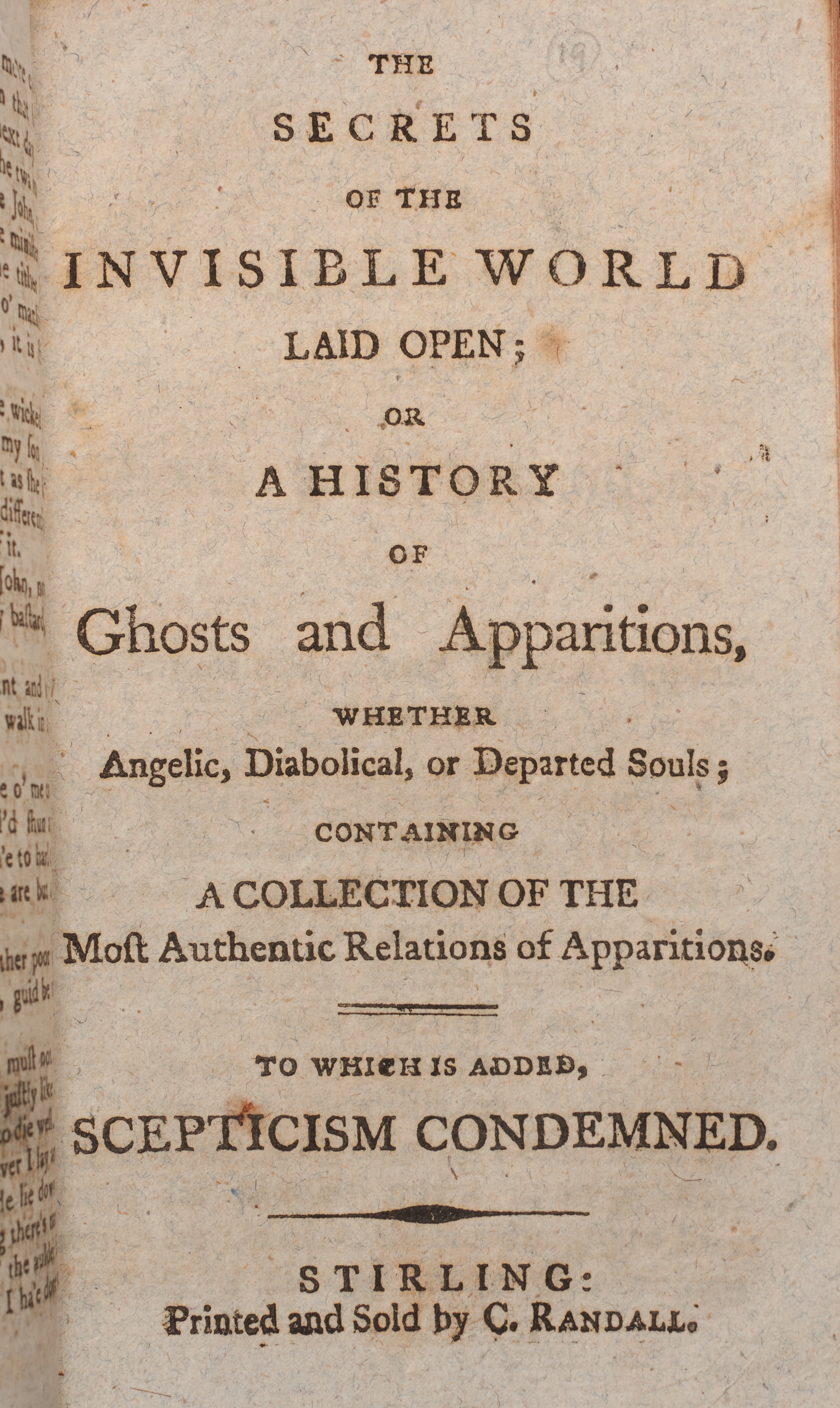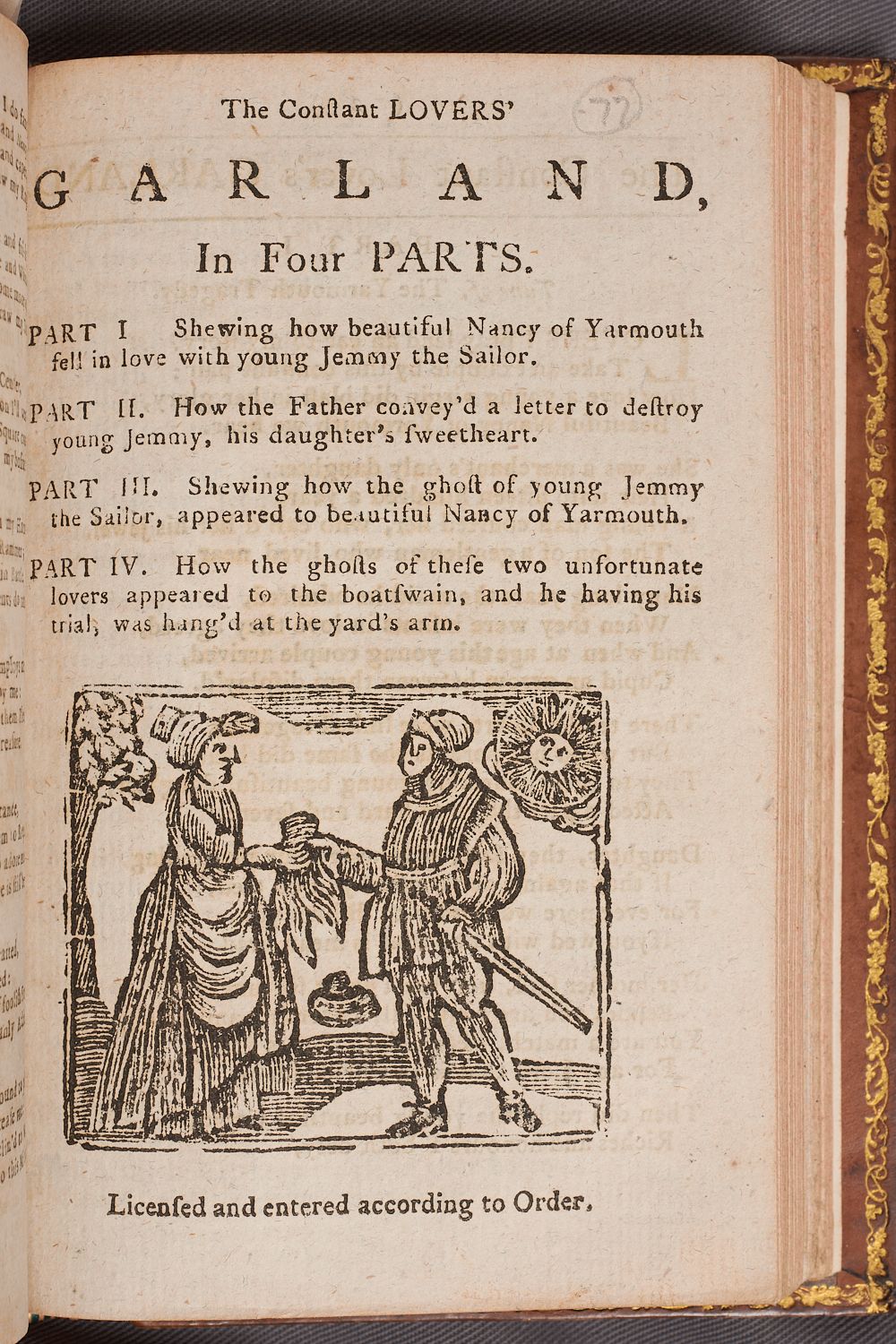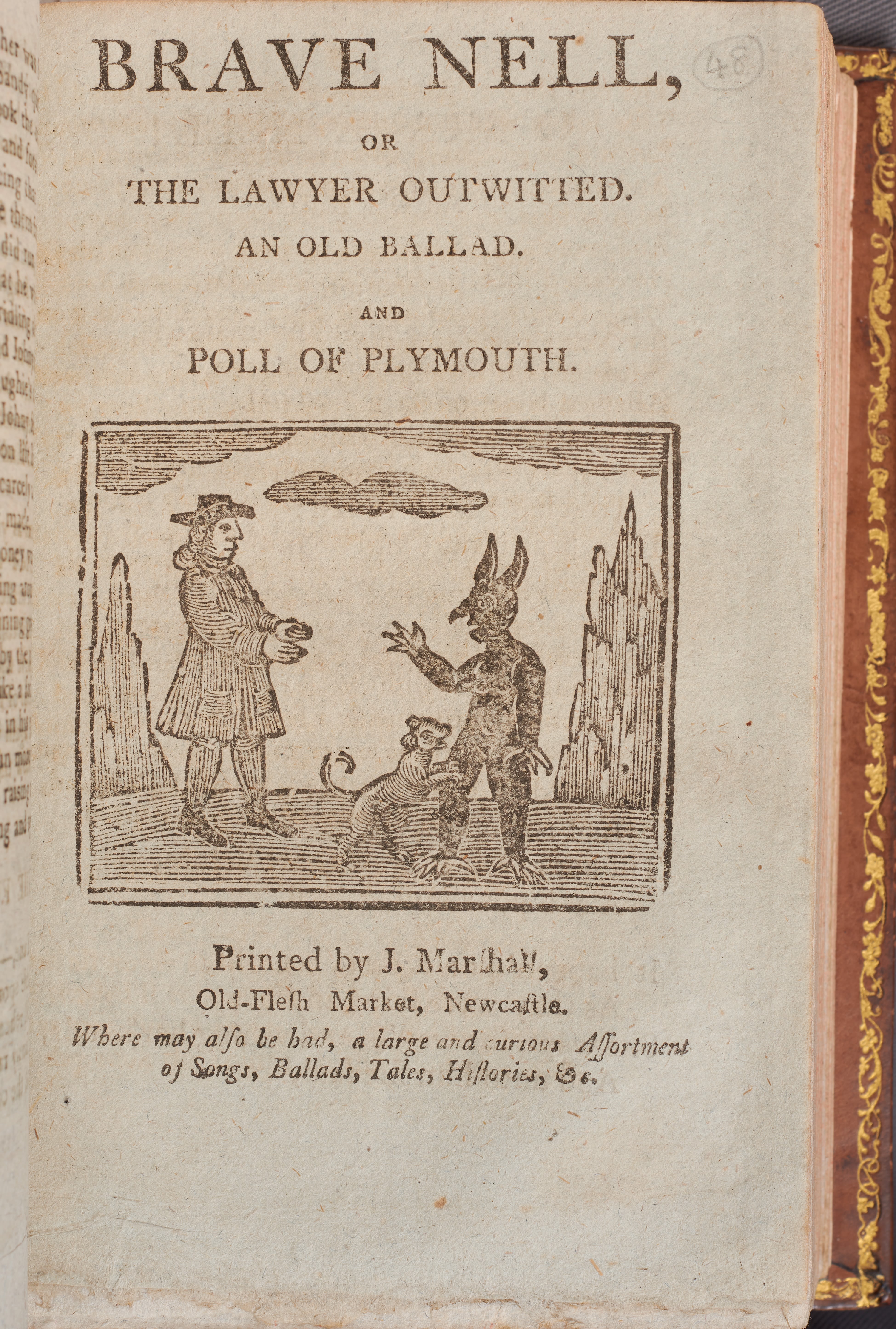4. Superstition and Folk Belief
As one might expect from material that belongs to popular tradition, many of the chapbooks deal with superstition and folk belief.
This was an aspect of cultural history that Scott was interested in throughout his life.
Stories relating to superstitious belief are present in his earliest literary experiments and throughout his established career as a poet and novelist, and this interest was to culminate in Letters on Demonology and Witchcraft, published in 1830.
The material in the chapbooks clearly informed this passion.
It ranges from shortened versions of more well-known texts on the supernatural such as ‘The Secrets of the Invisible World Laid Open…to which is added Scepticism’, to more blood curdling stories of ghosts and apparitions such as ‘Miss Bailey’s Ghost’.
During much of the time when Scott's chapbooks were published, Britain was at war and the story of ‘Nancy of Yarmouth and Jemmy the Sailor’ is typical of the period.
In this story a protective father rids himself of an unwanted suitor by sending him to sea but his ghost returns to drag his female lover to a watery grave. This conflation of the supernatural with the political circumstances of the time captures the flavour of much of the material in the chapbooks.
At times the supernatural is also balanced by scepticism. As one chapbook announces:
"Scepticism and credulity are equally unfavourable to the acquisition of knowledge. The latter anticipates and the former precludes all enquiry. One leaves the mind satisfied with error, the other with ignorance."
Overall, the chapbooks perhaps show less credulity concerning the supernatural than we might expect to find in popular literature, but it is clear that the idea of it remains on the fringes of possibility, and provides a useful device both for story-telling and for interrogating social conventions. Nowhere is this more evident than in the story of ‘Brave Nell, or the Lawyer Outwitted’. In this chapbook Nell is seduced by a lawyer and falls pregnant. He tells her he will sooner meet the devil than betray her but, as we might fear, he abandons her for a rich woman. Nell obtains some soot and ram horns and dresses up as the devil to meet the unfaithful lawyer on the road. In this guise ‘the devil’ tells the lawyer that he must marry Nell. He does, and we are told that they apparently live happily ever after!
Such stories demonstrate the ways in which a lingering belief in the supernatural could be used to influence the circumstances of domestic life. There is also a delight in the fact that the lower class Nell (along with her butcher and chimney sweep friends) gets the better of the professional lawyer, an irony that would not have been lost on Scott who was himself trained in the legal profession.
What is interesting about these stories is that they are simultaneously exploiting a belief in the supernatural while also making it the subject of ridicule. Often, too, they are used to overturn what we might expect to be the conventional religious morality of the day and they give a surprising amount of power to women.
